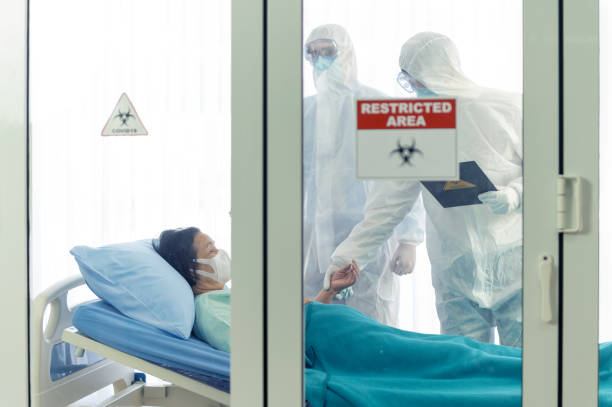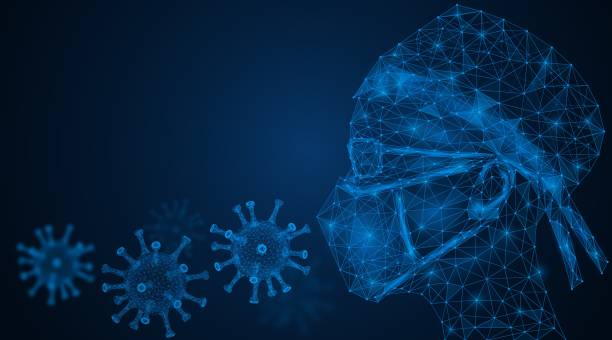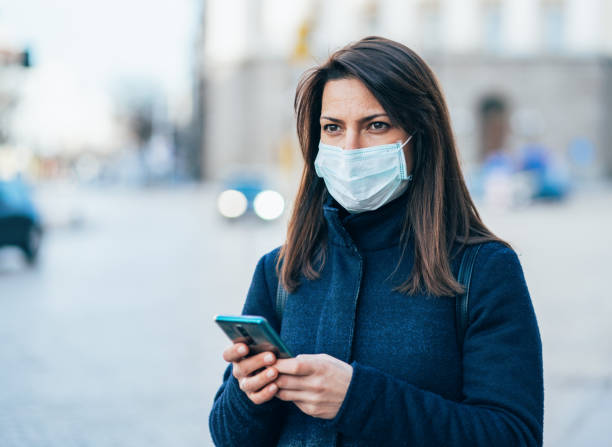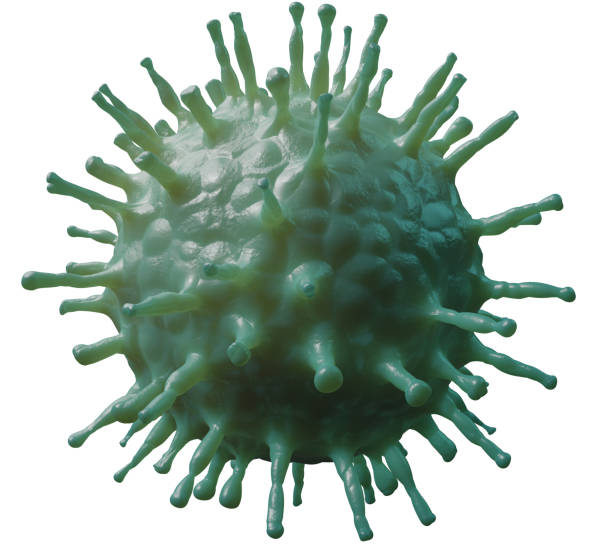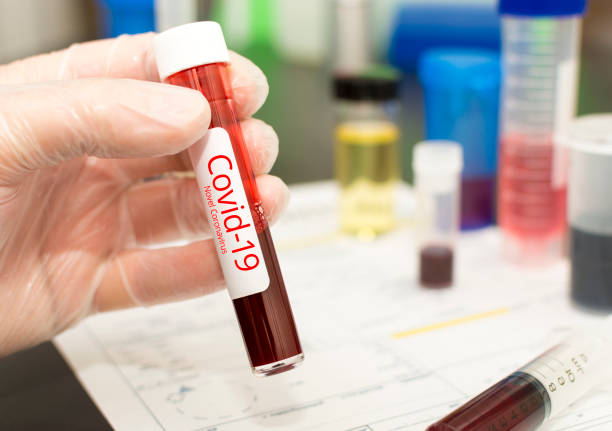Title: The Evolving Landscape of Coronavirus in America: Challenges, Responses, and Progress
In the wake of its emergence in late 2019, the coronavirus pandemic has posed a multifaceted challenge for countries around the world, with the United States of America being no exception. The pandemic, caused by the novel coronavirus SARS-CoV-2, has significantly impacted the American society, economy, healthcare system, and way of life. This article delves into the evolving landscape of coronavirus in America, examining the challenges faced, responses mounted, and the progress achieved.
Challenges Faced:
The onset of the pandemic presented an array of challenges that the United States had to grapple with. The virus spread rapidly across the country, straining the healthcare infrastructure and exposing disparities in access to care. Overcrowded hospitals and shortages of critical medical supplies highlighted the unpreparedness of the healthcare system for such a crisis.
The economic fallout was equally severe. Lockdowns and restrictions aimed at curbing the virus's spread led to business closures, job losses, and economic recession. Vulnerable populations bore the brunt of these effects, with low-income workers, gig economy participants, and small business owners facing immense uncertainty.
Responses Mounted:
In response to the unprecedented challenges posed by the pandemic, the American government and various institutions initiated a range of measures. The Centers for Disease Control and Prevention (CDC) and the National Institutes of Health (NIH) played critical roles in providing guidance and conducting research on the virus.
Federal, state, and local governments implemented various levels of lockdowns and restrictions to curb the virus's spread. The Coronavirus Aid, Relief, and Economic Security (CARES) Act was a landmark piece of legislation aimed at providing financial assistance to individuals, businesses, and healthcare providers affected by the pandemic. Vaccine development also became a top priority, leading to unprecedented collaboration between government agencies, pharmaceutical companies, and research institutions.
Vaccination Campaign and Progress:
One of the most significant turning points in America's battle against the virus was the development and distribution of vaccines. Multiple vaccines were developed and authorized for emergency use, including those developed by Pfizer-BioNTech, Moderna, and Johnson & Johnson. The nationwide vaccination campaign aimed to inoculate the population against the virus and achieve herd immunity.
The vaccination effort was met with a combination of enthusiasm, skepticism, and logistical challenges. Health authorities faced the task of not only procuring and distributing vaccines but also combating misinformation and addressing vaccine hesitancy. As millions of Americans rolled up their sleeves to receive their shots, the vaccination campaign played a pivotal role in reducing the severity of COVID-19 cases and preventing hospitalizations and deaths.
A Path to Recovery:
As the vaccination campaign gained momentum, the United States began to witness glimpses of recovery. Restrictions were gradually eased, allowing businesses to reopen and people to resume social activities. The American Rescue Plan Act injected further financial aid into the economy, supporting families, healthcare systems, and local governments.
However, the recovery process was not without its challenges. New variants of the virus, such as the Delta variant, posed threats to progress made, leading to localized outbreaks and renewed concerns. Balancing the need for economic recovery with ongoing public health measures remained a delicate dance for policymakers.
Lessons Learned and Looking Forward:
The coronavirus pandemic underscored the importance of preparedness, robust healthcare systems, and effective governance in the face of global health crises. The gaps in access to healthcare and economic disparities exposed during the pandemic highlighted areas needing systemic improvement.
Looking forward, the lessons learned from this crisis can inform strategies to mitigate future challenges. Investments in healthcare infrastructure, disease surveillance, and research can enhance the nation's resilience to pandemics. Strengthening social safety nets and addressing systemic inequalities are crucial steps toward building a more equitable society.
In conclusion, the journey through the coronavirus pandemic in America has been marked by challenges, responses, and progress. From the initial shockwaves of the virus's arrival to the development and deployment of vaccines, the nation has undergone a transformative experience. While uncertainties remain, the collective efforts of individuals, communities, and institutions provide hope for a future where the nation is better prepared to face similar challenges, armed with knowledge and resilience.
In the wake of its emergence in late 2019, the coronavirus pandemic has posed a multifaceted challenge for countries around the world, with the United States of America being no exception. The pandemic, caused by the novel coronavirus SARS-CoV-2, has significantly impacted the American society, economy, healthcare system, and way of life. This article delves into the evolving landscape of coronavirus in America, examining the challenges faced, responses mounted, and the progress achieved.
Challenges Faced:
The onset of the pandemic presented an array of challenges that the United States had to grapple with. The virus spread rapidly across the country, straining the healthcare infrastructure and exposing disparities in access to care. Overcrowded hospitals and shortages of critical medical supplies highlighted the unpreparedness of the healthcare system for such a crisis.
The economic fallout was equally severe. Lockdowns and restrictions aimed at curbing the virus's spread led to business closures, job losses, and economic recession. Vulnerable populations bore the brunt of these effects, with low-income workers, gig economy participants, and small business owners facing immense uncertainty.
Responses Mounted:
In response to the unprecedented challenges posed by the pandemic, the American government and various institutions initiated a range of measures. The Centers for Disease Control and Prevention (CDC) and the National Institutes of Health (NIH) played critical roles in providing guidance and conducting research on the virus.
Federal, state, and local governments implemented various levels of lockdowns and restrictions to curb the virus's spread. The Coronavirus Aid, Relief, and Economic Security (CARES) Act was a landmark piece of legislation aimed at providing financial assistance to individuals, businesses, and healthcare providers affected by the pandemic. Vaccine development also became a top priority, leading to unprecedented collaboration between government agencies, pharmaceutical companies, and research institutions.
Vaccination Campaign and Progress:
One of the most significant turning points in America's battle against the virus was the development and distribution of vaccines. Multiple vaccines were developed and authorized for emergency use, including those developed by Pfizer-BioNTech, Moderna, and Johnson & Johnson. The nationwide vaccination campaign aimed to inoculate the population against the virus and achieve herd immunity.
The vaccination effort was met with a combination of enthusiasm, skepticism, and logistical challenges. Health authorities faced the task of not only procuring and distributing vaccines but also combating misinformation and addressing vaccine hesitancy. As millions of Americans rolled up their sleeves to receive their shots, the vaccination campaign played a pivotal role in reducing the severity of COVID-19 cases and preventing hospitalizations and deaths.
A Path to Recovery:
As the vaccination campaign gained momentum, the United States began to witness glimpses of recovery. Restrictions were gradually eased, allowing businesses to reopen and people to resume social activities. The American Rescue Plan Act injected further financial aid into the economy, supporting families, healthcare systems, and local governments.
However, the recovery process was not without its challenges. New variants of the virus, such as the Delta variant, posed threats to progress made, leading to localized outbreaks and renewed concerns. Balancing the need for economic recovery with ongoing public health measures remained a delicate dance for policymakers.
Lessons Learned and Looking Forward:
The coronavirus pandemic underscored the importance of preparedness, robust healthcare systems, and effective governance in the face of global health crises. The gaps in access to healthcare and economic disparities exposed during the pandemic highlighted areas needing systemic improvement.
Looking forward, the lessons learned from this crisis can inform strategies to mitigate future challenges. Investments in healthcare infrastructure, disease surveillance, and research can enhance the nation's resilience to pandemics. Strengthening social safety nets and addressing systemic inequalities are crucial steps toward building a more equitable society.
In conclusion, the journey through the coronavirus pandemic in America has been marked by challenges, responses, and progress. From the initial shockwaves of the virus's arrival to the development and deployment of vaccines, the nation has undergone a transformative experience. While uncertainties remain, the collective efforts of individuals, communities, and institutions provide hope for a future where the nation is better prepared to face similar challenges, armed with knowledge and resilience.
